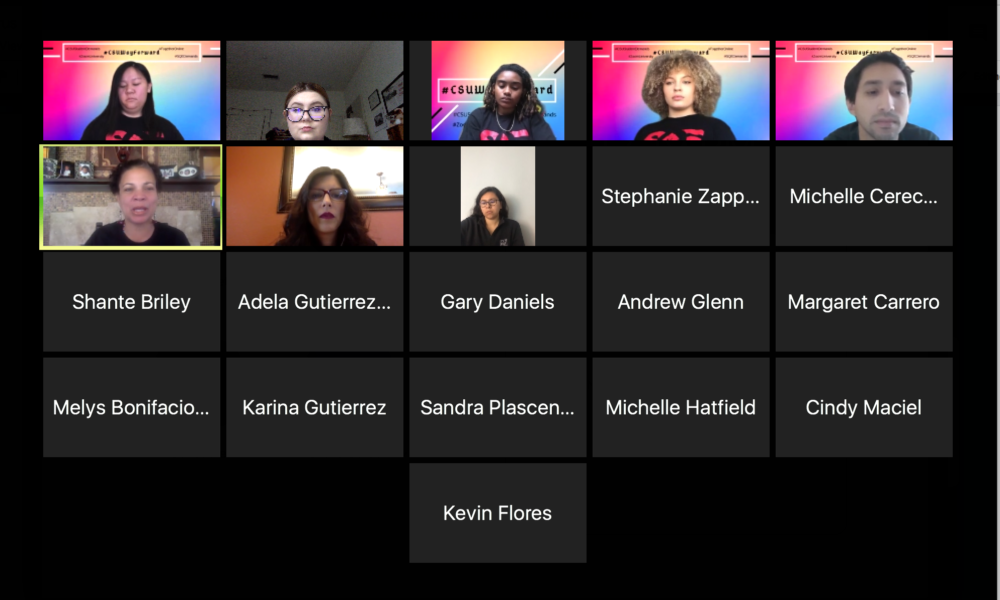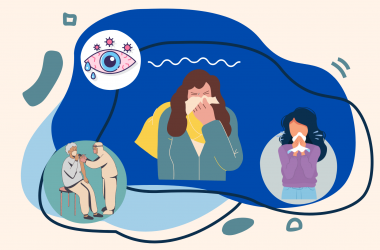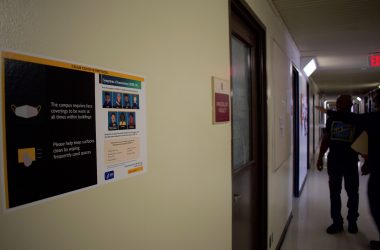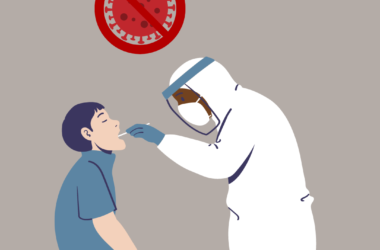Members of Students for Quality Education and the California Faculty Association are calling for better support from the California State University system for students and transparency surrounding their response to coronavirus.
Hayli Antonowitz, SQE representative from Long Beach State, said they organized their demands to call attention to the struggles college students are facing due to COVID-19.
“We’re going to be discussing the enhanced inequities that students from the California State University system are facing now due to campus closures and administrative decisions,” Antonowitz said.
Tamiel McKee Bey, fourth-year Africana Studies major at San Diego State, called on the CSU system to hear and respond to their demands.
“I know that it is within the power of the CSU system to address the immediate needs and concerns of our students, faculty and staff,” Bey said. “There is no CSU without those of us who work hard to uplift our students and the mission of our educators.”
Presented to the Board of Trustees Monday, the activists outlined a total of eight demands to the CSU; demands which have yet to receive a response.
The demands, listed by Bey, are as follows:
- Students should receive a full reimbursement for campus fees and services which have been suspended due to CSU system’s response to COVID-19.
- Emergency stipends should be provided for student workers who are currently unemployed without pay as well as an emergency stipend for all CSU enrolled students.
- The CSU system should provide safe and free student housing during the remainder of the pandemic.
- The CSU system needs to create immediate accessibility practices for online conferences and course materials.
- A paid-student task force should oversee the dissemination of CARE Act funds.
- A solidified date for the commencement for the class of 2020 needs to be provided.
- Faculty and staff need to receive the same pay now as they would during in-person instruction.
- Student input should be consulted in the event of another crisis and more transparency in the system’s decision-making process should be made available.
“These demands recognize that our students, faculty and staff are people first,” Bey said. “Their basic human needs can no longer go unrecognized by the CSU system.”
The demands were inspired by a survey administered by SQE to 3,200 students across the CSU system.
Mei Curry, SQE leader from San Diego State, said the survey was sent out after the system-wide decision to close campuses in response to COVID-19.
Curry presented the findings as follows:
- 31% of students reported not knowing where to go after being asked to vacate the premises of their dormitories.
- 35% reported having three or less days to vacate their dormitories.
- 64% responded saying their university offered no assistance or guidance for alternative housing.
- 3% of students who took the survey said they did not have access to reliable means of communication and 18% said they did not have access to adequate internet.
- 7% reported not having access to a computer and 43% said they were unsure of whether or not their university would be providing access to computers.
- 66% of students said they felt supported by individual professors while only 41% of respondents said they felt supported by their university.
“The CSU system students need far more sustainable support from the system as a whole and individual campuses in the wake of their campus closure and forced transition to online learning,” Curry said.
Alejandro Bupara, co-coordinator of SQE at Cal Poly San Luis Obispo, called on the CSU to focus its efforts on supporting students in vulnerable communities.
“We recognize that CSU students are part of broader communities,” Bupara said. “We remind everybody here that we only thrive when our communities thrive. CSU students deserve our best chance of recovering from the fallout of this pandemic.”
Bupara said marginalized communities are feeling the effects of the virus more heavily than others because of their perceived place in society.
He called to attention housing insecure, food insecure and financially unstable students who may be more at risk now more than ever.
“This pandemic is not bringing inequalities any qualities to light, this pandemic is highlighting the truth that many of us already knew: this system was never meant to work for marginalized peoples,” Bupara said. “All of these crises were crises of inequality that were present before COVID-19. COVID-19 is merely making clear of who is valued in our society.”
Margarita Berta-Avila, professor of social sciences at Sacramento State and California Faculty Association chapter president, spoke on behalf of the students she serves, calling on the CSU system to respond.
“The realities of our students cannot be ignored, be it fighting for a living wage, health care, affordable housing, food security, safety because of immigration status, because you are a person of color,” Berta-Avila said. “This is more pertinent now with COVID-19, in which students are demanding resources to help them sustain and survive.”
Berta-Avila advocated for bringing more mental-health professionals onto campuses, an area Long Beach State has long struggled with.
“We cannot accept [this] as normal, a sentiment of barely sustaining and surviving,” Berta-Avila said. “If the experiences students have described are not addressed anc change is not made, our students, and in turn their families and communities-become human collateral embedded in institutionalized racism, sexism and so on.”
Melina Abdullah, professor of Pan-African studies at California State University, Los Angeles, urged the CSU system to consider SQE’s demands.
“They’re more than just their temporary identity of students, they are workers, they are whole and complete human beings,” Abdullah said.
Bupara said that SQE is holding the CSU system to a deadline of the end of July to coincide with the finalization of the organization’s budget.
If the demands are not met, Bupara said he and his fellow student activists won’t give up.
“[We’ll] continue making our voices heard by whatever means we need to use,” he said.





Let us also be mindful and thankful for the good work that folks do. For example, the UC and CSU have already publicly stated 3 days ago that they will provide emergency relief for DACA students who weren’t rightfully recognized in the CARES Act. And California continues to courageously lead the nation in supporting our undocumented folk. Despite the fact that our President constantly threatens to cut off our funding for being a Sanctuary state. Yes, there is work to be done. But let us also take a moment to be thankful for the work that has been, and continues to be, done. In Aloha!